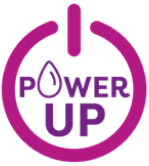How Different Types of Blood Donation Help Patients
In the time it takes to blink, another hospital patient in the U.S. will need a transfusion. Some patients will need whole blood, while others will need platelets, plasma or a combination of different transfusions.
The good news is you can help! And by giving specific types of blood donation such as platelets, plasma or Power Red directly, you can help certain patients. The typical donation is one pint of whole blood, but special equipment allows us to collect different parts of your blood separately (a process called apheresis).
You can make the greatest impact by giving one of the recommended types of blood donation for your blood type. And your act of kindness will not only save lives, but also will make you feel good about helping others and contributing to your community.
The information below shows how the different blood donation types often help specific patients, and what blood types are best suited for each donation type. Patients in need will be grateful for whatever blood donation type you are able to give!*
Types of blood donation
Every blood type is needed to help patients who count on lifesaving transfusions.
Whole Blood Donation

Whole blood can help many types of patients, especially those undergoing surgery and trauma patients. During this type of donation, we collect about one pint of your blood, test it, and then separate your donation into components like red blood cells and plasma.
- Patients helped: Most often trauma and surgery patients
- Recommended Blood Types: All types
- Total time: 1 hour
- Donation time: 15 minutes
- How often you can donate: Every 56 days up to 6 times a year
Power Red or Double Red Cell Donation

Power Red donations pack double the impact because the automated procedure collects a concentrated donation of red cells that can help twice as many patients. Power Reds are especially helpful to trauma victims, newborn babies and sickle cell patients.

- Patients helped: Pediatric patients, trauma or surgery patients, sickle cell patients and people with anemia
- Recommended Blood Types: O-, O+, A-, B-
- Total time: 1.5 hours
- Donation time: 40 to 45 minutes
- How often you can donate: Every 112 days up to 3 times a year
Platelet Donation

Platelet donations are vital to many cancer patients. Chemotherapy can destroy platelets, a key blood component for clotting blood to stop bleeding. This type of donation is exclusively at donation centers and uses a special automated process to collect platelets.

- Patients helped: Cancer patients, people with blood disorders, open-heart surgeries and organ transplants
- Recommended Blood Types: A+, B+, AB+ and AB-
- Total time: 2.5 to 3 hours
- Donation time: 2 hours
- How often you can donate: Every 7 days up to 24 times a year
Plasma Donation
.jpg?width=529&height=248&ext=.jpg)
Plasma, the liquid portion of your blood, carries all the other parts of your blood. Plasma donations often help people with serious burns or major blood loss caused by other traumas. This type of donation also involves an automated process to remove only the plasma from your blood.

- Patients helped: Patients in shock, those with severe burns or clotting disorders
- Recommended Blood Types: AB+, AB-
- Total time: 1.5 to 2 hours
- Donation time: 30 to 45 minutes
- How often you can donate: Every 28 days up to 13 times a year
Granulocyte Donation
Platelet and plasma donors may be able to help patients fight life-threatening infection by making a granulocyte donation. Granulocytes are vital for patients with weakened immune systems, including pediatric cancer patients and people receiving bone marrow or stem cell transplants. Granulocytes are collected for specific patients and must be transfused within 24 hours. The collection process is similar to platelet donation, with donors receiving medication to temporarily boost white blood cell levels. Granulocyte donors must meet specific criteria, and currently Vitalant collects them in Pittsburgh, Chicago, Arizona and Denver areas. Please call Special Services at 480-675-5554 to ask about becoming a granulocyte donor for seriously ill patients.
Ready to schedule your donation?
Schedule your donation online by selecting a location and time in our online scheduler.
Vitalant staff may ask if you’d like to make a different type of blood donation when you schedule or arrive at your appointment. They may base their request on your blood type, other criteria such as weight, and current patient needs.
You can also choose what type of donation you would like to make when scheduling an appointment.
*Not all donation types are available at all locations. Final eligibility for any blood donation is determined on the day of donation.
